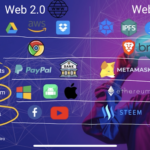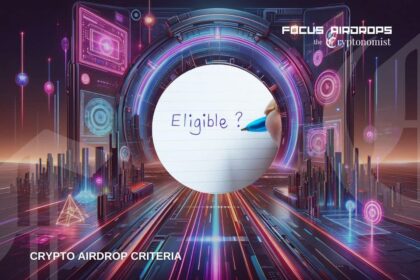The internet is undergoing a seismic shift, and Web3 is at the heart of this transformation. Powered by blockchain technology, Web3 is reshaping how we transact, interact, and create value online. Unlike Web2, which is dominated by centralized platforms and intermediaries, Web3 emphasizes decentralization, user ownership, and trustless systems.
From decentralized finance to NFTs, gaming, and even healthcare, the use cases of Web3 are vast and transformative. In this article, we’ll dive into the top use cases of Web3 that are already shaping the future, explore their real-world applications, and discuss their potential to revolutionize industries.
Introduction to Web3 Use Cases
Web3, also known as the decentralized web, represents the next evolution of the internet. It is built on principles that prioritize users’ rights, transparency, and autonomy. Unlike the centralized systems of Web2, Web3 relies on blockchain technology to create a decentralized ecosystem where data and value are controlled by users rather than corporations.
These principles have enabled new possibilities for innovation across various industries. Web3 applications are transforming traditional sectors like finance, art, and entertainment while paving the way for entirely new ecosystems.
The Foundation of Web3 Applications
Before diving into specific use cases, it’s important to understand the foundational technologies that make Web3 possible:
- Blockchain Technology: A distributed ledger that records transactions securely and transparently.
- Smart Contracts: Self-executing contracts that automate processes without intermediaries.
- Cryptocurrencies: Digital currencies that enable transactions within decentralized ecosystems.
- Decentralized Storage Solutions: Tools like IPFS and Filecoin that replace centralized data servers.
- Decentralized Identity (DID): Systems that give users full control over their digital identities.
Top Use Cases of Web3 That Are Shaping the Future
Web3 is not just a concept; it is a growing ecosystem of practical applications that are already transforming industries. Let’s explore the most significant use cases.
1. Decentralized Finance (DeFi): Redefining Financial Systems
One of the most impactful applications of Web3 is Decentralized Finance (DeFi), which removes intermediaries like banks from financial transactions. DeFi platforms run on blockchain networks and provide a range of financial services.
Key DeFi Use Cases
- Lending and Borrowing: Platforms like Aave and Compound allow users to lend or borrow cryptocurrencies without traditional banks.
- Decentralized Exchanges (DEXs): Platforms like Uniswap and SushiSwap enable peer-to-peer trading of digital assets.
- Yield Farming: Users earn passive income by providing liquidity to DeFi protocols.
- Stablecoins: Cryptocurrencies like USDC and DAI maintain stable values and are used in DeFi for payments and transfers.
Benefits of DeFi:
- Global accessibility.
- Lower transaction fees.
- Financial inclusion for the unbanked.
2. Non-Fungible Tokens (NFTs): Redefining Ownership
NFTs are unique digital assets that represent ownership of items like art, music, videos, and virtual real estate. Unlike cryptocurrencies, which are fungible, NFTs are one-of-a-kind and cannot be replicated.
NFT Use Cases
- Digital Art: Platforms like OpenSea and Foundation allow artists to tokenize their work and sell it as NFTs.
- Music Ownership: Artists can sell music directly to fans without intermediaries, ensuring fair royalties.
- Gaming Assets: In blockchain games, NFTs represent in-game items like weapons, skins, or characters that players truly own.
- Virtual Real Estate: Platforms like Decentraland and The Sandbox allow users to buy, sell, and develop virtual land.
Real-World Example:
- The digital artwork “Everydays: The First 5000 Days” by Beeple sold for $69 million as an NFT.
Visual Representation of NFTs:
3. Blockchain Gaming and Play-to-Earn Models
Web3 is revolutionizing the gaming industry by enabling true ownership of in-game assets and introducing play-to-earn (P2E) models. Blockchain-based games allow players to earn cryptocurrency by participating in gameplay, providing financial incentives for gaming.
Examples of Web3 Gaming
- Axie Infinity: A play-to-earn game where players breed and battle creatures called Axies to earn cryptocurrency.
- The Sandbox: A virtual metaverse where players can build, own, and monetize experiences.
- Gods Unchained: A blockchain-based collectible card game where players own their cards as NFTs.
Benefits of Blockchain Gaming:
- Players can trade, sell, or transfer their assets outside the game.
- Developers and players can share in the game’s success.
4. Decentralized Autonomous Organizations (DAOs): A New Way of Governance
DAOs are organizations that operate on blockchain technology and are governed by smart contracts. Unlike traditional organizations, DAOs are decentralized, and decisions are made by token holders through voting.
Popular DAO Use Cases
- Investment DAOs: Communities pool funds to invest in projects (e.g., FlamingoDAO for NFTs).
- Social DAOs: Groups form around shared interests and manage collective activities (e.g., Friends With Benefits).
- Protocol DAOs: Governing protocols like Uniswap DAO, where token holders vote on changes to the platform.
Benefits of DAOs:
- Transparent decision-making.
- Global participation without hierarchy.
5. Decentralized Identity and Privacy
Web3 introduces Decentralized Identity (DID) systems, which empower users to control their digital identities without relying on centralized platforms like Google or Facebook.
Use Cases of Decentralized Identity
- Login Without Passwords: Use blockchain-based wallets like MetaMask to log in to Web3 platforms securely.
- Data Ownership: Users decide which personal information to share and with whom.
Example Platforms:
- ENS (Ethereum Name Service): Decentralized domain names tied to blockchain identities.
- Civic: A platform for secure identity verification.
6. Healthcare: Revolutionizing Data Management
Web3 is transforming healthcare by enabling secure, decentralized data storage and management. Blockchain ensures that patient data is tamper-proof and accessible only to authorized parties.
Healthcare Use Cases
- Electronic Health Records (EHRs): Patients control their medical records and grant access when needed.
- Clinical Trials: Blockchain improves transparency and trust in trial data.
- Supply Chain Management: Ensures the authenticity of pharmaceuticals and medical devices.
7. Supply Chain Transparency
Web3 improves supply chain transparency by tracking products from origin to destination on blockchain networks. This ensures accountability, reduces fraud, and enhances efficiency.
Use Cases in Supply Chain
- Food Industry: Platforms like IBM Food Trust track the journey of food items.
- Luxury Goods: Companies like Vechain authenticate high-value items like designer bags and watches.
8. Decentralized Content Platforms
Web3 empowers creators by allowing them to share and monetize content directly without intermediaries.
Examples of Decentralized Content Platforms
- Audius: A decentralized music streaming platform.
- Mirror: A decentralized publishing platform for writers.
Benefits:
- Fair revenue sharing.
- Censorship resistance.
Future Potential of Web3 Use Cases
While the current applications of Web3 are transformative, its potential is far greater. In the coming years, we can expect:
- Integration with AI and IoT: Smart devices and artificial intelligence powered by blockchain will automate complex processes.
- Expansion of the Metaverse: Web3 will play a key role in building decentralized, immersive virtual worlds.
- Universal Basic Income (UBI): Blockchain-based systems may enable transparent and equitable distribution of wealth.
FAQs
What industries are being transformed by Web3?
Web3 is revolutionizing industries like finance, gaming, art, healthcare, and supply chain management.
What are some examples of Web3 applications?
Examples include DeFi platforms (Uniswap), NFT marketplaces (OpenSea), and blockchain games (Axie Infinity).
What is the role of blockchain in Web3?
Blockchain provides the infrastructure for decentralization, security, and transparency in Web3 applications.
How does Web3 empower users?
Web3 empowers users by giving them control over their data, digital assets, and online interactions.
Is Web3 the future of the internet?
Yes, Web3 is widely regarded as the next phase of the internet, addressing the limitations of Web2 through decentralization and user ownership.
Conclusion
Web3 is not just an upgrade to the internet; it’s a revolution that is transforming industries and empowering individuals. From DeFi and NFTs to gaming, healthcare, and decentralized governance, the use cases of Web3 are vast and impactful.










